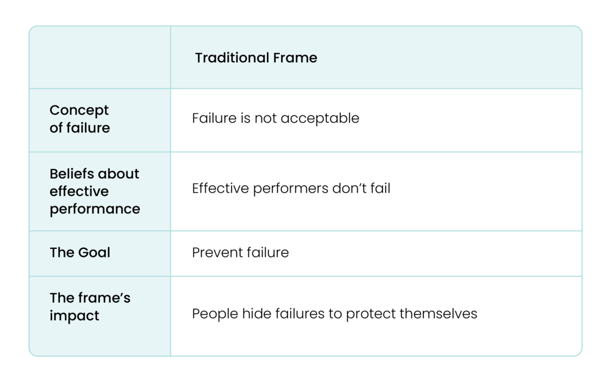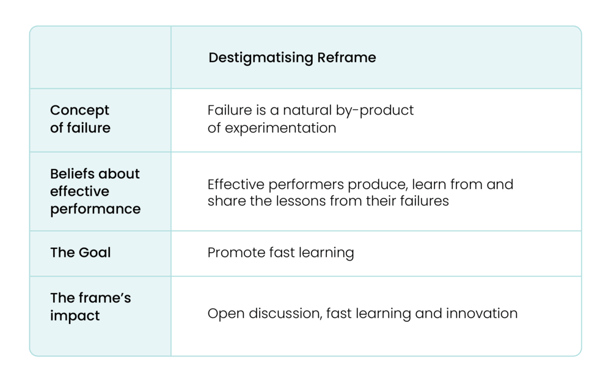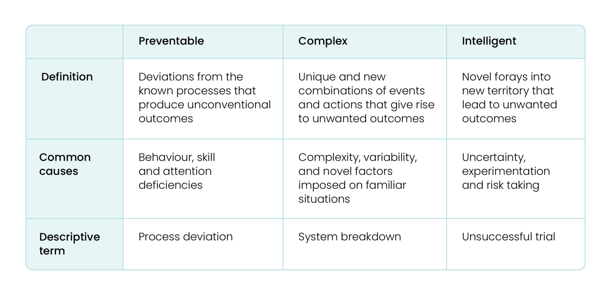The 3 Different Types of Failure
We addressed the other F word in the last post and wondered why its not discussed more in learning when its such a critical part of the process.
So let’s look at what we can do about it. I say “we” rather than “organisations” because the reality is many organisations are like political parties. They exist to make money for their shareholders and aren’t going to shift unless the voters aka employees demand change.
We need to shift the conversation around failure from this:

To this:

The above table that I’ll also be expanding on in the next post is from the book 'The Fearless Organization' by Amanda C. Edmondson. This is one great read – topical, accessible and practical.
I urge you to get it.
So where do we start in reframing this word?
Because we need a roadmap right?
...And a common language.
Its got to be simple because if it isn’t we all know we’ll just carry on with our own lives wishing this stuff would change but not doing anything about it.
Where we start is by recognising that there are 3 different types of failure, each occurring for different reasons and therefore needing different responses.

Preventable failure is where most of us play day to day. There’s a human being involved and there’s an error of some kind based on a behaviour, skill or attention deficiency.
Complex failures are often to do with systems and processes that that aren’t based on a human being making a stuff up.
And the last type is what we call an Intelligent failure which arises from people taking risks and experimenting, for example in the design and testing of a new product.
The challenge in organisations - and outside of these organisations if we’re honest – is that our response to these 3 types of failures are often the same. We see all failure as a sign of human weakness or deficiency and jump on it as quickly as possible and do our best to keep it quiet and hidden.
What we really want is different responses from individuals and organisations to the different types of failures that people can experience.
So, in the final post we’ll look at the different responses to these 3 types of failures, especially the preventable ones, and expand on the role that learning can take in not only reframing what this means but ultimately reframing what the culture of that organisation could be.
In the meantime, I’ll leave you with this question.
What’s the Failure frame where you work right now? If it’s the traditional frame what’s the impact on the culture of that organisation and the soul of the individual?





